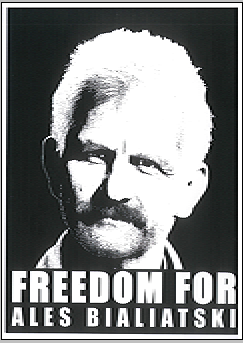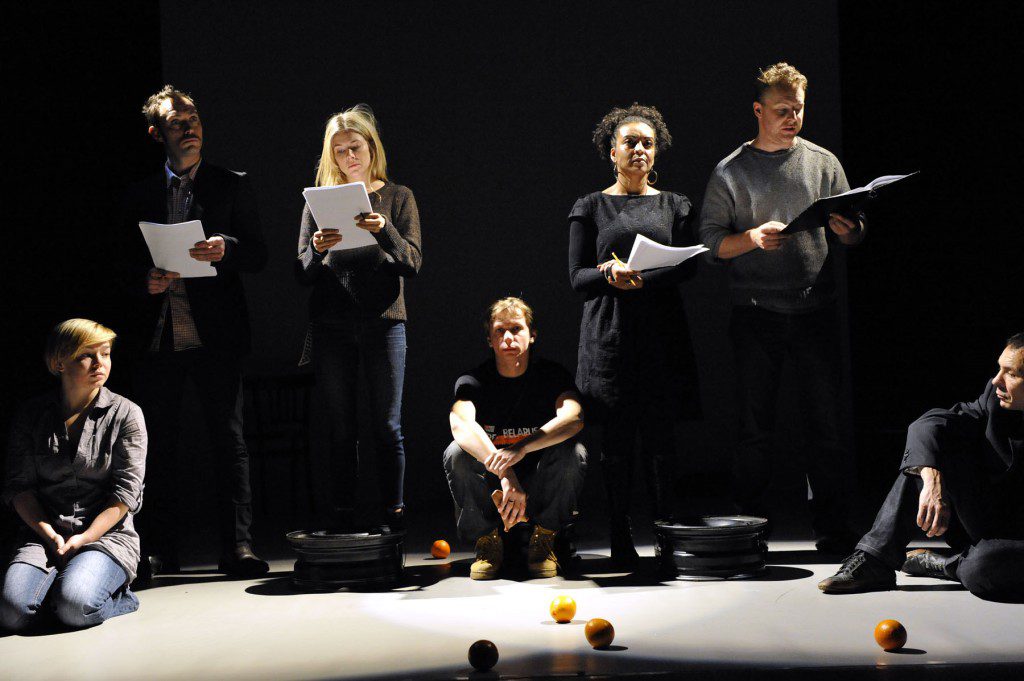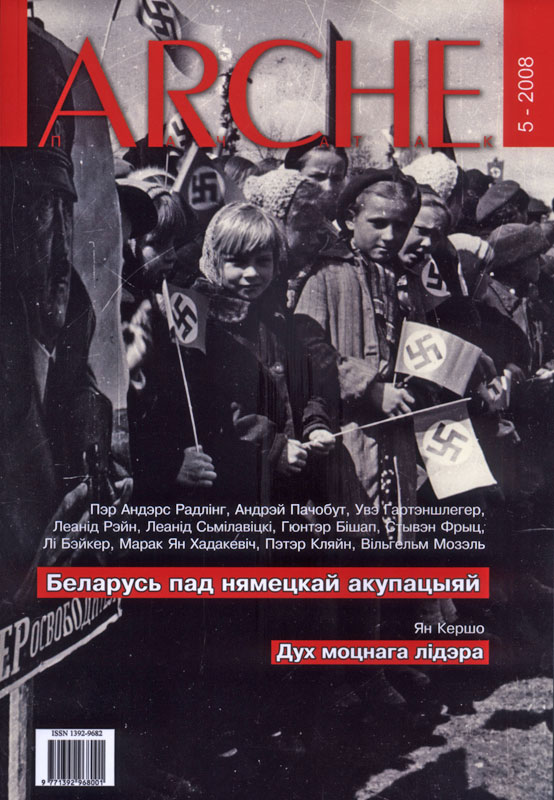Index relies entirely on the support of donors and readers to do its work.
Help us keep amplifying censored voices today.
On 19 December 2010, thousands gathered to protest against rigged presidential elections. In response, Lukashenko’s forces staged a brutal crackdown, arresting dozens of political opponents and activists, including seven presidential candidates.
Index immediately set up a campaign to free the jailed political prisoners. Through targeted social media, news articles, blogs, protests and events, Index brought the situation faced by ordinary Belarusians to the attention of the international community. We worked with partners such as the Belarus Free Theatre and Free Belarus Now to stop international banks selling Belarusian government bonds; we lobbied the UK government and EU to institute sanctions; and at our 2011 Annual Awards we honoured all those detained.
After 18 months of persistent campaigning, in April 2012, Belarus caved in and political prisoners, including high-profile opposition leader, Andrei Sannikov, were released. All of this was possible because you helped us. But the story doesn’t end here….
This holiday season activist Ales Bialiatski is still in solitary confinement in Belarus. He recently told Index how just receiving photos and cards from our supporters on his 50th birthday let him know that people are fighting for his cause and keeping international attention on his plight.
Natalia Kaliada is co-founder of the Belarus Free Theatre. The group, formed in 2005, performs provocative political works in a country where it can be lethal to criticise the dictator Alexander Lukashenko. Natalia was forced into exile after the brutal crackdown on Belarus’s opposition after the rigged 2010 presidential elections. Here she speaks to Nigel Warburton about the difficulty of creating art in Europe’s last dictatorship
On 8 December police entered the rented Minsk premises of the Belarus Free Theatre (BFT) and forced the actors and members of the 60-person audience to provide identity information.
The officers interrupted a performance of the BFT’s play Zone of Silence. After they had recorded the identities of everyone in the building, the show then went on.

Index on Censorship presents the Belarus Free Theatre
December 2010: Jude Law, Sienna Millar and Samual West perform Zone of Silence
The theatre troupe is used to police harassment. Saturday’s raid was the second police visit in 24 hours — the previous day police told manager Svetlana Sugako to prepare a list of the passport details of all BFT actors and staff.
The BFT is known for staging plays that reflect life in Belarus under the authoritarian rule of President Lukashenko, and for international campaigns protesting state repression and demanding the release of political prisoners. Index has worked with the theatre company over a number of years.
As the company is not licensed by the state, BFT performances must take place in secret. Prospective audience members receive text messages at short notice, directing them to spaces in the woods or temporarily rented houses. Audience members have been arrested, and actors frequently harassed. Nicolai Khalezin, the company’s Art Director who was forced to flee Belarus with his wife and fellow theatre member Natalia Koliada after the country’s rigged 2011 elections, told Index:
The police entering the theatre during the play is just the tip of the repressive iceberg as the most serious acts of repressions take place off stage. All our actors were sacked from state theatres, expelled from universities; most of them have been detained, arrested or included in travel ban lists by the Belarus authorities.
We are considered dangerous to Lukashenko’s regime as we are well-known abroad, and things we say about the real situation in Belarus are picked up by international media.
Mike Harris, Head of Advocacy at Index on Censorship watched the Free Theatre perform in Minsk in 2010:
The Free Theatre have been targeted because their artistic dissent is one of the most internationally recognised voices against Lukashenko’s regime. The regime is attempting to curtail one of the last remaining spaces for free expression in Belarus.
Belarus Free Theatre – Numbers from IndexOnCensorshipTV on Vimeo.
Andrei Aliaksandrau is Belarus and OSCE Programme Officer at Index. He tweets at @aliaksandrau
Arche, Belarus’s only monthly magazine published in Belarusian faces closure after the state authorities froze its bank accounts and launched criminal proceedings against its editor.
Arche editor Valery Bulhaku was detained on 14 September while giving a talk in the city of Hrodna, a regional centre in western Belarus. More than 5,000 books and other publications were seized during a search of his home.
He has been accused of “illegal business activities”, and the Department of Financial Investigations is conducting an in-depth inspection of the financial activities of the magazine. Other investigators are searching for “extremist ideas” in the confiscated books and journals.
As is often the case in Belarus, state TV ran severely biased coverage of the story, screening supposedly investigative pieces for several days about how Arche’s publishers had not only broken company law but had violated the Criminal Code. The TV stories accused the publishers of “dubious interpretation of the history of Belarus during fascist occupation”.
(more…)